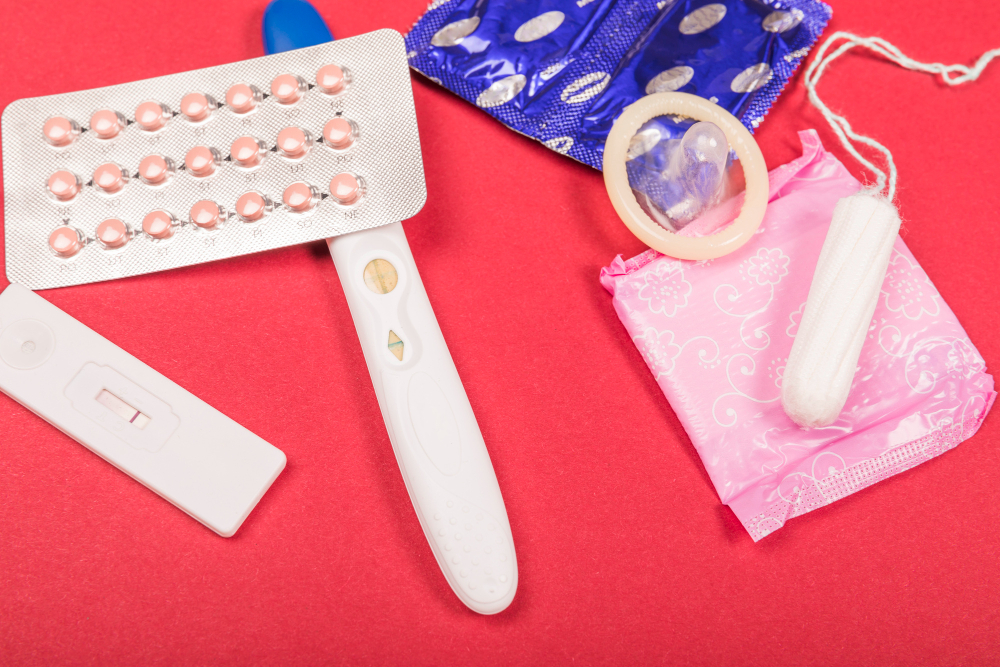Contraception is a personal choice that comes with its own set of considerations. In this comprehensive guide, we delve into the less-talked-about aspects of various birth control options, including the oral contraception pill, contraceptive implant, injection, IUD, and the morning-after pill. Let’s unravel the complexities and make informed choices together.
1. The Oral Contraception Pill: The Pros and Cons
Ah, the classic pill – a small but mighty guardian against unwanted surprises. It’s not just about preventing pregnancy; it’s a multitasker, tackling issues like irregular periods, heavy flows, and even acne. But, like any hero, it’s not without its flaws.
Common Side Effects: Beyond the Basics
Sure, the pill gets the job done, but it might hit your libido where it hurts. Unfortunately, decreased interest in ‘the other room activities’ is on the side effect list. And that’s not all – watch out for intermenstrual spotting, nausea, headaches, and even mood swings. It’s like a rollercoaster but for your hormones.
Who Should Beware?
Before you embark on the pill-popping journey, give your doctor the lowdown. Whether you just had a baby, are battling the baby blues, or have a history of allergic reactions, it’s crucial intel. Let’s not forget the checklist: diabetes, high cholesterol, and more. Your health history matters, folks!
2. Contraceptive Implant
Now, onto the contraceptive implant – a low-maintenance option for the planners out there. It’s discreet, effective, and lets you return to business without interruptions. But, of course, it has its quirks.
Strings Attached: What to Expect
Abdominal pain, weight gain, and the potential for noncancerous ovarian cysts – the implant’s got its own set of party crashers. And don’t be surprised if your libido takes a hit, along with a cameo appearance from dizziness and mood swings. It’s the trade-off for a hassle-free contraceptive gig.
3. Contraceptive Injection: A Shot at Birth Control Without the Estrogen Drama
Hate swallowing pills? Enter the contraceptive injection. No estrogen, no problem. But let’s unravel the potential side effects hiding in that little shot.
The Injection Chronicles: What You Need to Know
Changing menstrual cycles, weight gain, and the risk of infection at the injection site – it’s not all rainbows and butterflies. And here’s a curveball – it can mess with your bone density. But fear not, most women bounce back when the injection’s in the rearview mirror.
4. IUD: Weighing the Pros and Cons of Uterine Guardians
The IUD is a small but mighty defender in the uterine realm. But, as with any superhero, it’s not without its challenges.
IUD Real Talk: Sorting Through the Side Effects
Irregular periods heightened STI risk, and, in rare cases, a wild journey into the uterine wall – the IUD’s got its adventure. It’s a tough decision, but knowledge is power, my friends.
5. The Morning-after Pill: Your Emergency Exit Strategy
Last but not least, the morning-after pill – the superhero of last-minute contraception. But beware, it’s not for everyone.
Emergency Contraception Drama: What You Might Face
Headaches, nausea, and dizziness – the morning-after pill’s exit strategy comes with temporary discomforts. Allergies or certain meds? Consider yourself warned.
Conclusion
Navigating the landscape of birth control options requires a thoughtful examination of the side effects associated with each method. While no method is perfect, understanding the nuances allows for an informed decision that aligns with individual health needs and lifestyles.
FAQs
Do contraceptive pills affect fertility in the long term?
Contraceptive pills typically do not impact long-term fertility. Most women resume normal fertility shortly after discontinuing use.
Can IUDs increase the risk of sexually transmitted infections?
While IUDs don’t cause STIs, they may slightly increase the risk. Proper protection against STIs is still essential.
Is weight gain inevitable with contraceptive injections?
Weight gain is a possible side effect, but not everyone experiences it. Discuss any concerns with your healthcare provider.
How soon after taking the morning-after pill can I expect my period?
Menstrual changes may occur after taking the pill, but normal periods usually resume within the next cycle.
Are there natural alternatives to hormonal birth control?
Yes, non-hormonal options like condoms and fertility awareness methods provide alternatives to hormonal birth control. Consult with your healthcare provider to find the best fit for you.
Engage with this guide to make informed choices about birth control, considering not just its benefits but also the potential side effects that come with it.
